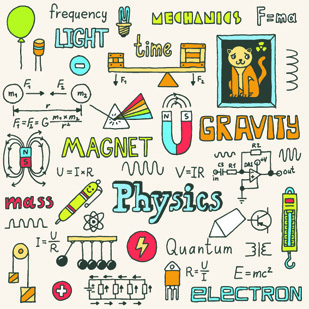

Year 11 Physics Units 1 and 2 – Bellum Bellum Blended Learning Hub
Overview
Physics looks at the principles behind how the physical world operates. It also examines the technology that comes from it.
Unit 1 examines key concepts of light, nuclear processes and electricity.
Unit 2 examines key concepts of motion and aerodynamics.
You will apply the scientific method to design and conduct a practical investigation related to knowledge and skills you developed in Units 1 and 2.
Who is it for?
If you are interested in the principles behind how the physical world operates and the technologies that come from it, then Physics may just be the subject for you.
Units 1 and 2 can be done on their own, or continue onto Units 3 and 4, which are intended for students interested in pursuing science, technology, engineering and/or mathematics (STEM) courses at university.
What do you do?
You will be required to complete online quizzes, written assignments, simple physics simulations, short practical experiments and a practical investigation of a topic of your choice.
In addition, you will be invited to laboratory sessions at VSV, and excursions to places of interest such as Luna Park and the Victorian Space Science Education Centre.
What skills do you need?
There is no prerequisite for this course.
However, you will need some basic mathematical skills such as applying and manipulating algebraic equations, basic trigonometry relationships and Cartesian graphs to solve some physics problems.
What skills do you develop?
You will develop skills including:
- analytical and problem-solving skills
- graphical analysis of data
- experimental techniques.
Requirements
Reliable internet access is needed for this course. All work must be completed and submitted online weekly.
Practical work is a central component of learning and assessment and may include activities such as laboratory experiments, fieldwork, simulations, modelling etc. Students can complete laboratory experiments in their home school or using provided secondary data. We will spend at least 15 hours of the Unit 1 course and 17 hours of the Unit 2 course completing practical work and scientific investigations.
There is not a required textbook. If you wish to use a textbook to supplement your learning you may discuss this with your teacher once you are enrolled.
A scientific calculator. Please note that a graphical/CAS calculator cannot be used for Physics Units 1 – 4.
Things to think about
Physics, more so than any other sciences, is the physical manifestation of mathematics. Students who excel in in this course are generally competent in mathematics up to the Year 10 level.
You are expected to spend five to eight hours of independent self-study per week to complete the required weekly reading and tasks. Do you have the time and dedication to doing this?
Things you can do now
Watch the three videos below as they give you a feel for the different topics covered in the course.
Go to the VCAA website for more information about this subject.
Things to have a look at
Rainbows
How Does Fusion Power the Sun?
Newton’s 3 Laws